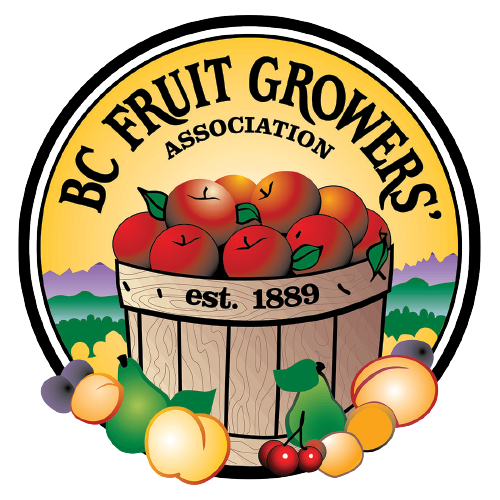Adapting
The B.C.F.G.A. adapted to the new conditions caused by the end of mandatory one-desk selling. It tried to ease friction between B.C. Tree Fruits Ltd. and the packing houses by restructuring its organization. The position of ombudsman was established, and a new Industry Contract was approved between the packing houses and the B.C.F.G.A.
After a long and heated debate at the B.C.F.G.A.’s 1975 convention, the highly respected Allan Claridge was appointed ombudsman. He provided a service for nonbinding mediation of disputes between the packing houses and B.C. Tree Fruits. The ongoing conflict between the packing houses and B.C. Tree Fruits Ltd., both of which served the same growers, could be viewed with humor if the consequences had not been so serious. Sid Godber, editor of the British Columbia Orchardist, pointed out the apparent split personality of the average member of the B.C.F.G.A.
As matters stand now the grower goes to his B.C.F.G.A. Local meeting wearing his B.C.F.G.A. hat and votes on the various issues accordingly and eventually those issues come to the floor of the much vaunted growers’ parliament, the B.C.F.G.A. annual Convention, and there, the delegates vote largely as instructed by their locals. Then comes the Dr. Jekyll and Mr. Hyde bit. Growers go to their packing house meetings and often vote in direct opposition to what they voted for when wearing their B.C.F.G.A. hat.
Despite this problem, Mr. Claridge continued to solve disputes in his fair and impartial manbeen reported to several B.C.F.G.A. Conventions, ner until 1985, when packing house directors became directors of B.C. Tree Fruits Ltd.
Would the new Industry Contract for producing, packing and marketing fruit help unify fruit growers? B.C.F.G.A. membership qualifications were altered so that a full member was a grower who operated an orchard capable of producing a minimum of $2,000 worth of fruit per year. Members had to have a contract with a packing house which in turn had signed the Industry Contract with B.C. Tree Fruits Ltd. Except for roadside fruit stands and other designated local sales, B.C.F.G.A. members had to send all of their fruit to the packing houses, which then sold the produce through B.C. Tree Fruits. Even culls designated for processing at Sun-Rype Products Ltd. had to go first to a packing house. The marketing agency sold exclusively through a few large wholesalers. Eventually, all the packing houses agreed to the Industry Contract, although the Haynes Co-operative Growers and the Oliver- Osoyoos Kaleden Co-operative were a little slow to do so. In order to promote greater harmony in handling the new Industry Contract, packing houses were given majority representation on the B.C. Tree Fruits/Sun-Rype Products Ltd. Board.
In some ways, however, the Industry Contract increased friction between the packing houses and B.C. Tree Fruits Ltd. If the packing house did not police the contracts of the fruitleggers, then B.C. Tree Fruits could cancel the contract of the packing house concerned. Packing houses were often reluctant to challenge a grower on this matter, and resented the threat which B.C. Tree Fruits held over them.
Vignette: Role of B.C.F.G.A. Ombudsman by Allan Claridge (Industry Ombudsman since 1975)
The establishment of the position of ombudsman at the eighty-sixth Annual Convention of the B.C.F.G.A. in 1975 was intended to provide a service for non-binding mediation of disputes between shipping organizations (packinghouses) and B.C. Tree Fruits Ltd.
A great majority of these disputes were settled by the parties involved, without outside assistance, but there were times when this was not possible and the services of the Ombudsman were requested and used in the years immediately after the establishment of that position.
With the change in the structure of the Board of Directors of B.C. Tree Fruits Ltd., when packing house directors became directors of the sales agency, the possibility of such disputes diminished or disappeared and further requests for assistance from these sources were not forthcoming.
In 1985, a revision of the area of jurisdiction was made and the B.C.F.G.A. Executive entertained requests for mediation between growers and their shipping houses, provided that both parties involved requested such service.
While there have been a number of requests from growers for the services of the Ombudsman, packinghouses have generally refused and consequently this service has remained unused for the past several years.
The fact that the Ombudsman has been unable to participate in internal fruit industry disputes, because of the lack of agreement by both parties to request this non-binding mediation, has but no solution has been found. It has been the delegates’ position that the possible safety valve feature of this office should be retained so that if it became acceptable to the aggrieved parties, it could be used as a mediating method within the Industry.







